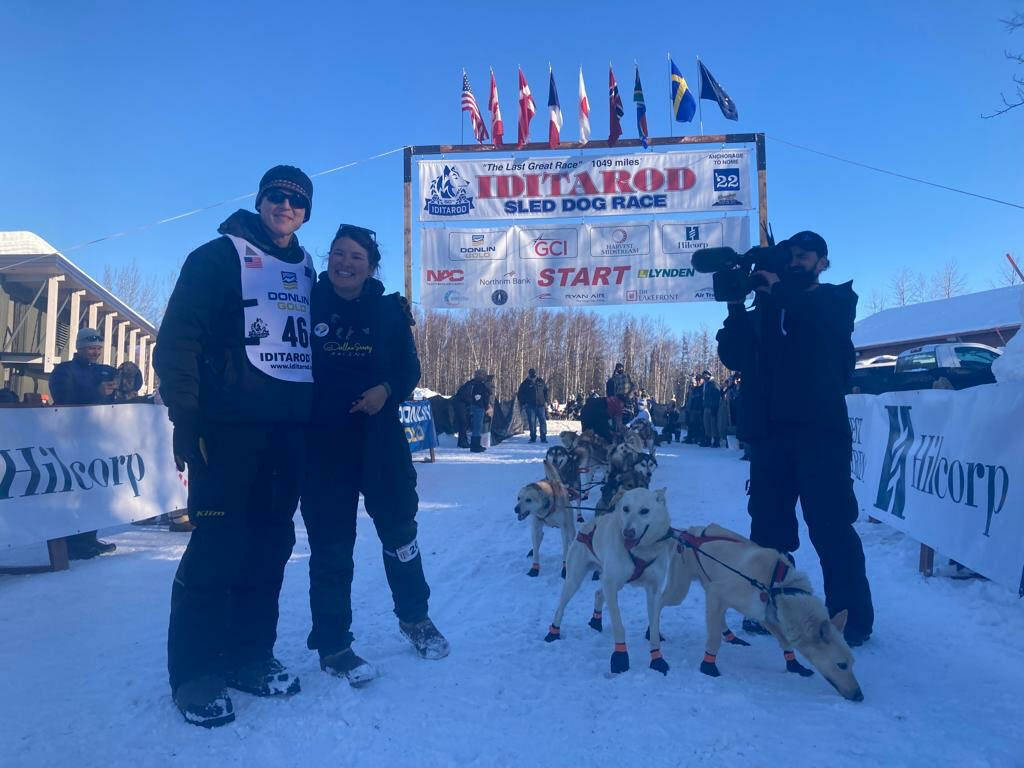Transformed from ferry passenger to musher, islander Chad Stoddard’s favorite way to travel has become by dog sled. Stoddard placed 7th in his second Iditarod, an annual long-distance dog sled race that spans 1,000 miles from Anchorage to Nome.
“It’s something that gets in your blood,” he said.
Stoddard was born in Alaska but moved to the island with his family when he was about three years old.
Attending Friday Harbor High School, he participated in many sports growing up, including football, basketball, and baseball.
Stoddard said these sports gave him a competitive drive, which contributed to his success with the Iditarod.
Once he graduated high school in 2006, he attended Western Washington University in Bellingham, where he studied geography and natural resources.
After graduating from college, Stoddard would find himself shuffling through crawl spaces doing weatherization work for low-income housing in Bellingham.
He worked that job for a few years before deciding to visit Alaska in 2014. There, Stoddard met his current partner, Ibi, who introduced him to the dog sled world. Unbeknownst to him, that introduction would change the course of Stoddard’s life.
Stoddard received his first sledding job for Alaska Ice Field Expeditions in the summer. In the winter, he traveled to Jackson, Wyoming, and gave sled tours there as well.
In 2018, he moved back to Fairbanks full time and began working for an Iditarod kennel owned by Lance Mackey. Mackey was the first person to win the Iditarod four years in a row. Stoddard gained the opportunity to really learn at the kennel, and even raise the dogs that he’d be racing with.
“The most powerful aspect for me is the relationship you build with the dogs themselves,” he said. “You know, they’re a man’s best friend. You have 14 of your best friends with you on these races. You go through so much with them.”
Once Stoddard obtained all of his qualifying races, such as 750 miles of distance racing, in 2021, he decided it was time to give the Iditarod a shot. He placed 23rd and received the rookie of the year award.
Despite the award-winning aspect and bonding time with the dogs, Stoddard said that racing is not an easy lifestyle. Sleep deprivation is one of the most common challenges, along with harsh weather. Conditions can dip down to as low as negative 40 as mushers race along the Arctic and Bering Sea coasts.
There are seven checkpoints where mushers may be able to find food and lodging.
When sleds cross through Shaktoolik checkpoint, a city in Nome, they are crossing a wide expanse of frozen sea.
“This can be challenging because there are no features to the landscape,” he said. “You can get lost on the ice. There were a lot of teams that came into that checkpoint before I did and were not ready to be there in the middle of the night.”
During the 2022 Iditarod, Stoddard approached this checkpoint in the dead of night during a windstorm. Rather than feeling scared, he said he felt an immense sense of focus.
“The dogs make it all worthwhile,” he said warmly.
Jumping from 23rd place last year to 7th place this year, Stoddard won yet another award, “Most Improved.”
He plans on continuing working with his dogs, practicing the sled-racing lifestyle and improving more and more each year.
“I look forward to going out and trying to do better next time. It’s just really fun,” he said. “It’s hard to envision myself doing anything else now.”



